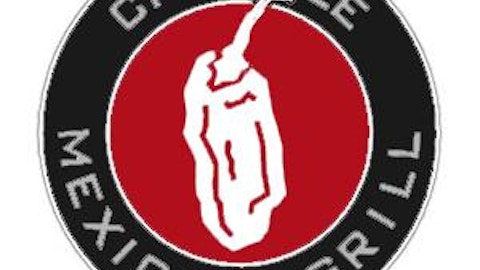No race of aliens has taught us so much about finance, markets, and economics as Star Trek’sFerengi. The Ferengi Rules of Acquisition, a personal and financial code of ethics, offers a buffet of aphorisms on making money by any means necessary. Greed is the number one virtue for the Ferengi, and they use the word “ethics” only in its loosest form. But some of their rules may have some truth for investors on Earth.
The Ferengi on Stock Picking
Rule 3: Never spend more for an acquisition than you have to.
Rule 141*: Only fools pay retail.
Rules 184 & 191**: A Ferengi waits to bid until his opponents have exhausted themselves.
Stocks move up and down regularly. Wait for an eventual dip, when the price reaches the value level you’re waiting for. That said, while that may work with cyclical companies, with growth stocks that dip in share price may never come. Watch for dips in the P/E ratio (or other metrics) to buy at better values, not prices, over time. There’s no need to buy when the feeding frenzy is on, including right before or after earnings. If you’re going to stick with a company for the long haul, you can sit back and wait for things to quiet down before making your move.
And note that Rule 141 says “fools”, not “Fools.”
Rule 7: Keep your ears open.
Rule 9: Opportunity plus instinct equals profit.
Rule 74: Knowledge equals profit.
Peter Lynch said that buying what you know can be the small investor’s leg up on the Wall Street crowd. Find companies where you are already knowledgeable about the products or services it sells, and use that as a starting point for finding investments where you have an informational advantage. Follow the news. Learn about your companies. And stay open to reading dissenting viewpoints that contradict your investing thesis.
Rules 45 & 95: Expand or die.
A rule so nice they repeated it twice. Investors are always looking for the fastest growing companies. But growth companies that miss analysts’ growth estimates can see their share price hammered.

Consider the case of Chipotle Mexican Grill, Inc. (NYSE:CMG). Last October, the chain reported that sales grew less than expected in the recent quarter and management forecast slower sales growth in 2013. The next day, the share price dropped 15%. The company was still profitable and still growing, but investors sold in droves because it wasn’t growing fast enough. Is Chipotle Mexican Grill, Inc. (NYSE:CMG) a bad company to own? No. In this case, Chipotle’s shares rose back to their original price by the end of the year, and now it’s even higher. (And if you were following rules 3, 141, and 191 above, you could have purchased it for a bargain last fall.) While comparable store sales are expected to show small gains next year, Chipotle Mexican Grill, Inc. (NYSE:CMG) expects to open 165-180 new stores, which will lead to bigger growth in the future.
Regardless of Chipotle Mexican Grill, Inc. (NYSE:CMG)’s rebound, this rule does serve as a warning about how the market as a whole reacts to slower than expected growth. A growing company must keep expanding at a predictable rate, or Wall Street will lose interest.
The Ferengi on Financial Advice
Rule 47: Never trust a man wearing a better suit than your own.
Does your financial planner wear nicer clothes and drive a nicer car than you? That’s because he profits from your money through fees and commissions regardless of how well your portfolio performs. This point was made many decades ago in Fred Schwed’s book, “Where are the Customers’ Yachts?” Look for on-line brokerages with low commissions and fees, no load mutual funds with low expense ratios, and if you do use a financial planner, look for one that charges a flat fee, not a percentage of your portfolio.


